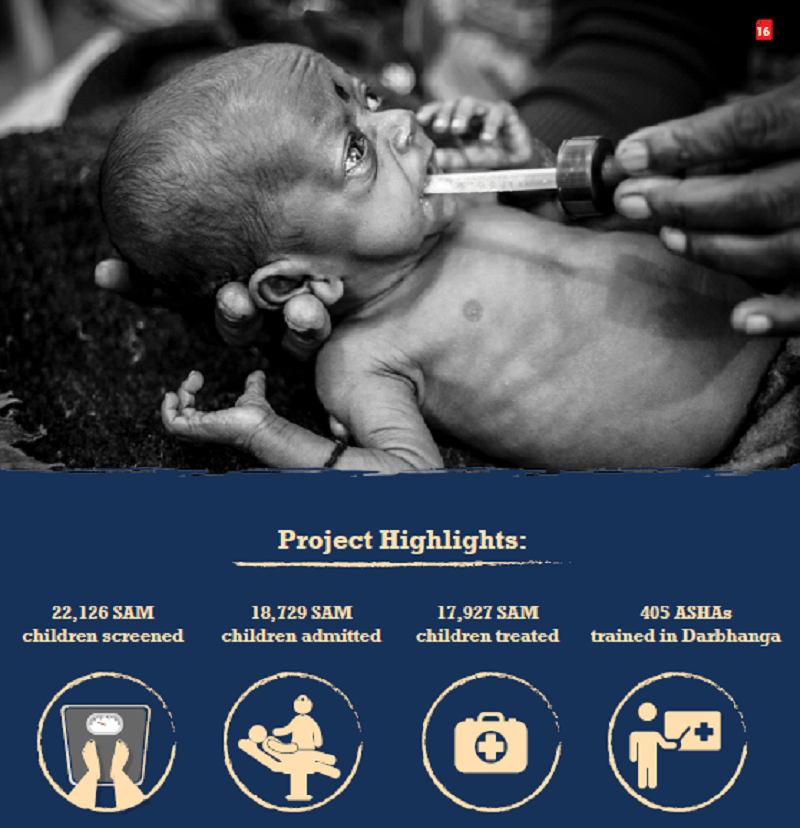Severe Acute Malnutrition (SAM) is a medical condition that affects growth and/or cognitive development especially in children aged six months to five years and if left untreated, can lead to death. Doctors Without Borders/Médecins Sans Frontières (MSF) believes that the treatment of SAM requires a medicalised approach, ideally using resources available within the public health system. To this effect, MSF started to work in the Darbhanga district of Bihar in 2009 promoting a decentralised approach to ensure greater treatment coverage for SAM children and reduce the risk of patients defaulting on treatment.
MSF has been working in the Darbhanga district of Bihar since 2009 providing curative treatment to children suffering from Severe Acute Malnutrition (SAM). In close collaboration with the State Health Society, MSF worked with the medical staff in Darbhanga’s 11 primary health centres to ensure proximity and continuity of care to severely malnourished children and has admitted more than 17,000 SAM patients, aged six months to five years in its community-based treatment programme in the district.
In August 2015, MSF handed over its Nutrition programme to Darbhanga Medical College and Hospital and the State Health Society.

MSF’s experience showed that SAM can be accurately detected in children at the community level with the help of frontline health workers. Accredited Social Health Activists (ASHAs) in the villages identify and screen children for SAM before referring them to the nearest primary health centre (PHC), where trained government nurses provide the necessary nutritional and medical care.
Only cases with medical complications require inpatient care at a facility that provides specialised care, like MSF’s Nutritional Rehabilitation Unit (NRU) or Malnutrition Intensive Care Unit (MICU). Set up in March 2014 inside the Darbhanga Medical College Hospital, the MICU provided treatment to SAM patients with severe medical complications.
MSF believes that a decentralised approach not only ensures greater treatment coverage for SAM children but also reduces the risk of patients defaulting on treatment.
Treatment for SAM in Bihar is largely inadequate or inaccessible, enhancing the problem of acute malnutrition. MSF, in close collaboration with the Bihar State Health Society, worked with the medical staff in Darbhanga’s primary health centres to ensure proximity and continuity of care to the most vulnerable and malnourished children.
-
Related:
- Malnutrition in Bihar
- Vaishali












